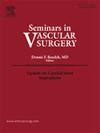自主、委托、自我效能和决策:培养独立外科医生的现状
IF 2.4
3区 医学
Q1 PERIPHERAL VASCULAR DISEASE
引用次数: 0
摘要
手术自主、委托、自我效能和决策是外科住院医师教育的基本方面。在过去的几十年里,实习医生在外科专科的手术自主权一直在下降。大多数评估临床结果的回顾性研究发现,随着受训人员独立性水平的提高,患者的发病率和死亡率没有显著上升。为了提供更多的自主权,主治医生会评估他们与实习生的关系,以及实习生的技能水平、病例的复杂性和他们自己的信心。确定的障碍包括对效率的渴望以及患者和医院对主治医生执行手术的期望。因此,受训者可以通过培养与主治医师的关系,展示临床能力以鼓励临床责任的授权,以及适应主治医师的教学风格来提高自我效能感。提高自主性的方法包括通过各种教学应用和角色转换对学员独立性进行纵向评估。对于患者、医院管理者和立法者来说,认识到在培训过程中展示手术独立性的重要性,以培养有能力、自给自足的外科医生是至关重要的。本文章由计算机程序翻译,如有差异,请以英文原文为准。
Autonomy, entrustment, self-efficacy, and decision-making: The current state of training independent surgeons
Operative autonomy, entrustment, self-efficacy, and decision-making are fundamental aspects of surgical resident education. Over the past few decades, trainee operative autonomy in surgical subspecialties has been declining. Most retrospective studies evaluating clinical outcomes with increasing levels of trainee independence have found no significant rise in patient morbidity and mortality. To provide more autonomy, attendings assess their relationship with the trainee, along with the trainee's skill level, the complexity of the case, and their own confidence. Identified barriers include a desire for efficiency and expectations from patients and the hospital that the procedure be performed by the attending. Consequently, trainees can enhance their self-efficacy by fostering a relationship with the attending, demonstrating clinical competence to encourage the delegation of clinical responsibilities, and adapting to the attending’s teaching style. Techniques to improve autonomy include longitudinal evaluations of trainee independence with a variety of teaching applications and role reversal. It is essential for patients, hospital administrators, and legislators to recognize the significance of demonstrating operative independence during training to cultivate competent, self-sufficient surgeons.
求助全文
通过发布文献求助,成功后即可免费获取论文全文。
去求助
来源期刊
CiteScore
3.50
自引率
4.00%
发文量
54
审稿时长
50 days
期刊介绍:
Each issue of Seminars in Vascular Surgery examines the latest thinking on a particular clinical problem and features new diagnostic and operative techniques. The journal allows practitioners to expand their capabilities and to keep pace with the most rapidly evolving areas of surgery.

 求助内容:
求助内容: 应助结果提醒方式:
应助结果提醒方式:


